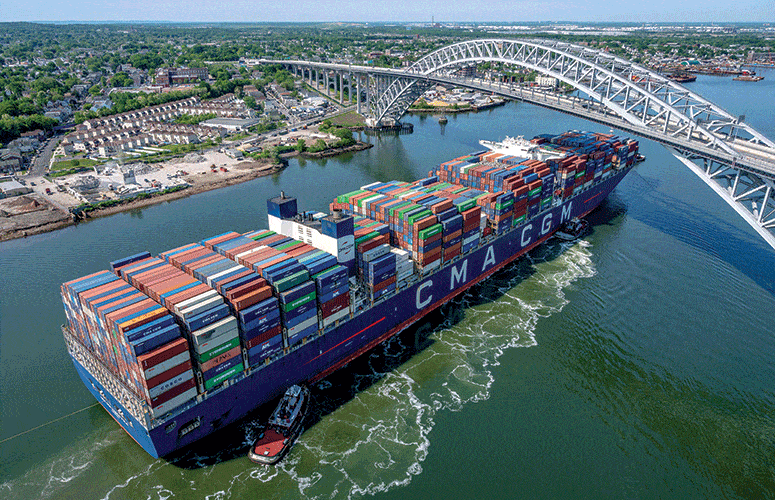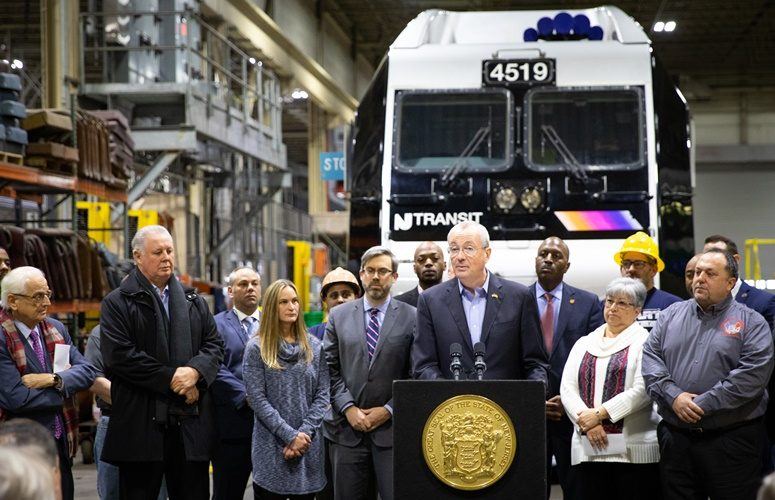
$9.3B PANYNJ Budget Means Big Capital Expenditures for Region’s Facilities
On Dec 14, 2023The Port Authority of New York and New Jersey Board of Commissioners has approved the agency’s $9.3 billion 2024 budget, which consists of $3.9 billion in operating expenses, $3.6 billion in capital expenses, and $1.8 billion for debt service and deferred expenses.
The approved budget reinvigorates the agency’s commitment to modern, secure facilities as activity and net revenues continue their recovery across Port Authority facilities following the COVID-19 pandemic.
The agency’s approved $3.6 billion capital budget reflects a return to pre-COVID spending levels following several years of reduced spending due to the COVID-19 pandemic. The spending will support:
- Advancement of the redevelopment of John F. Kennedy International Airport into a unified, world-class international gateway.
- Continued planning and advancing of the new Midtown Bus Terminal, replacing the current outdated terminal with a modern transportation hub that can accommodate capacity increases and help ease city congestion.
- Replacement of PATH’s current fare collection system with a modern “tap-and-go” system.
- Development of a new AirTrain Newark system to replace the current outmoded system serving Newark Liberty International Airport, as well as advancement of the EWR Station access project that will expand rail and airport access for underserved Newark and Elizabeth communities.
- Planning and preliminary work for a new express bus service for access to and from LaGuardia Airport, and improvements to MTA New York City Transit’s Q70 LaGuardia Link Select Bus Service.
- Continuation of work on the $2 billion, 11-project Restoring the George program at the George Washington Bridge to rehabilitate, repair or replace nearly every component of the world’s busiest vehicular bridge.
- Beginning of major work on the Port Street Corridor Improvement project at Port Newark to rebuild one of the facility’s main entrances and improve trucking operations at the east coast’s busiest container port.
Additionally, the approved budget supports agency priorities centering on safety and security, customer service and operational excellence, innovation, sustainability, and resiliency. Among other items, the funding will support:
- The agency’s largest-ever allocation toward safety and security, totaling nearly $1 billion. The funding strengthens the agency’s cybersecurity posture while advancing new Port Authority Police Department initiatives in response to an evolving threat landscape.
- Further steps toward the agency’s commitment to reach net-zero carbon emissions by 2050. The budget includes $86 million toward net-zero initiatives in addition to over $220 million to expand resiliency and flood mitigation measures.
- Driving innovation efforts, including $219 million for systems and technology supporting innovation. Additionally, $3 million will support the agency’s innovation hub, which allows employees to explore new technologies that may be of high value to the agency.
“As we emerge from a few years of uncertainty, we’re now more certain than ever about advancing our transformational plans and our core mission: moving people and goods safely and efficiently,” said Port Authority Chairman Kevin O’Toole. “That mission is borne out in this budget with record security funding, along with billions set aside to drive forward our work rebuilding, modernizing, and enhancing our region’s transportation network.”
“With travel activity rebounding across the region, we are returning to pre-COVID spending levels and aggressively moving ahead on a multitude of substantial projects,” said Port Authority Executive Director Rick Cotton. “Everyone who makes use of Port Authority facilities, from travelers at our airports and truckers at our seaport, to bus riders and PATH passengers, will see funding set aside to improve their experience in this spending plan.”
The $3.9 billion operating budget is focused on improving customers’ day-to-day experiences at agency facilities through diligent maintenance and high-quality customer service. Growth is driven by base budget inflationary escalations of $126 million, or 3.5 percent. An additional $66 million of special purpose spending is necessary for incremental costs associated with new or expanded facilities, required security investments, new PATH system state of good repair work, and operational investments.
Automatic inflation-based adjustments are scheduled for implementation at the bridges and tunnels on Jan. 7, 2024, and at AirTrain rail systems on March 3, 2024, as established by three resolutions of the Port Authority’s Board of Commissioners (2008, 2011, 2019). From September 2022 through September 2023, the consumer price index increased 3.7 percent, which triggered an annual automatic inflation-based bridge and tunnel toll adjustment of $0.63, as well as an AirTrain fare increase of $0.25. Port Authority tolls are only one way, and these incremental adjustments will result in Port Authority tolls similar to round trip tolls of other regional systems.
To access more business news, visit NJB News Now.
Related Articles:





